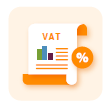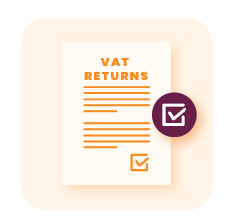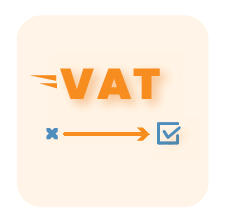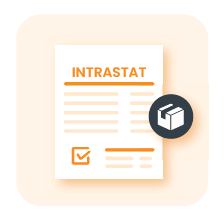VAT Registration in Ireland
According to Section 2(1) of the Irish VAT Act, a taxable person is an individual or entity that conducts business independently within the EU or other regions. In Ireland, mandatory registration for VAT is required when a person’s taxable supplies and acquisitions exceed certain thresholds within any consecutive 12-month period.
For traders without a physical presence in Ireland, there is no minimum registration requirement. Read below all about VAT registration for Ireland in our comprehensive guide.
Selling in Ireland?
Group and Divisional Registration
Group Registration
Grouping is typically a choice rather than a requirement, and each qualified entity can decide whether or not to join. However, the Irish Revenue Authority has the authority to enforce grouping even if no application has been submitted.
Divisional Registration
If a change needs to be made or a VAT group needs to be dissolved, the Irish Revenue Authority must be informed by submitting an application.
The leading member of the group must notify the Irish Revenue Authority in writing within 30 days after the conclusion of a tax period when any of the following changes occur:
- a significant change in the financial, economic, or organizational links between members,
- a member of the group is no longer established in Ireland
- If there is no longer a presence of at least one taxable person engaged in the supply of taxable goods and services in Ireland within the group.
Additionally, the Irish Revenue Authority reserves the right to cancel group registration by issuing written notice to each group member, with the specified date of effect.
Established Entities
According to Section 5 of the VAT Act, a taxable person refers to an individual who must register for VAT if they provide taxable supplies in Ireland. If the person is situated in Ireland, they are not obliged to register unless the total amount for these supplies reaches or is expected to exceed certain relevant thresholds during any continuous 12-month period. As per Section 2 of the Irish VAT Act, the registration threshold for goods is EUR 75,000, and the threshold for services is EUR 37,500.
Non-Established Entities
For traders without a physical presence in Ireland, there is no minimum registration requirement. Individuals engaged solely in VAT-exempt activities are not obligated or authorized to register for VAT until they are mandated to do so for other reasons, such as receiving VAT-taxable reverse charge services from international suppliers. Unless it is a “qualified activity,” taxpayers cannot claim an input VAT deduction for VAT expenses associated with an exempt supply.
Registration procedures in Ireland
Generally, applications for VAT registration must be submitted electronically, through the Irish Revenue Authority’s “Revenue Online Service” (ROS).
Certain applicants may not have the option to utilize the electronic registration system and are instead required to submit paper applications. Those without access to the Irish Revenue Authority’s myAccount portal, such as entities with no Irish-resident directors, unincorporated bodies, non-profit organizations, executors, and collection agents, fall into this category. The Office of the Revenue Commissioners is the designated location for the submission of paper applications.
Under Ireland’s two-tier VAT registration system, applicants for VAT registration are required to specify whether they are applying for “domestic-only” or “intra-EU” status (for those intending to trade with businesses in the EU).
When applying for VAT registration in Ireland, applicants must indicate whether they are requesting “domestic-only” or “intra-EU” status under the country’s two-tier VAT registration system (for those intending to engage in business with other EU companies). As per published guidelines from the Irish Revenue Authority, taxpayers who are granted “Intra-EU” status will be immediately registered for EC Sales List reporting obligations. Customers who request “intra-EU” status must furnish additional information on their VAT registration application forms, such as transportation arrangements, the type of supply and acquisitions, and due diligence measures taken to verify customers’ and suppliers’ bona fides. Customers with “domestic-only” status can apply for “intra-EU” status at any time and will be required to provide the aforementioned information. The Irish Revenue Authority’s guidance specifies that customers who held live VAT registrations prior to the introduction of the new VAT system are not impacted.
A firm is responsible for VAT from the date it is required to be registered for VAT or elects to register voluntarily for VAT, not from the date it applies for or receives its VAT registration number. As a result, if taxable supplies are made within the period, the business is not relieved of its need to account for and pay VAT while waiting for a registration number. Once a company has registered for VAT, it can reclaim any VAT it has paid on deductible transactions. Valid VAT invoices must be kept substantiating any input VAT deduction.
New Regulation July 2021
Starting from July 2021, new regulations were put in place, removing country-specific VAT thresholds, and replacing them with an EU-wide distance selling threshold of EUR 10,000. If a business’s distance selling revenues fall below this new threshold, VAT must still be paid in the country of origin or the home country of the business. However, all sales mentioned above are subject to tax in the countries where the goods and services are delivered.
Last Updated: 24/01/2024
Disclaimer
The information provided by Global VAT Compliance B.V. on this webpage is intended for general informational purposes only. Global VAT Compliance B.V. is not responsible for the accuracy of the information on these pages, and cannot be held liable for claims or losses deriving from the use of this information. If you wish to receive VAT related information please contact our experts at support@gvc.tax








